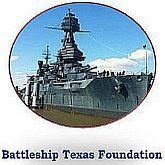| |
| |
|
WAR-TIME TRANSPORTATION |
|
|
|
W |
hen the greatest story of the greatest war
finally is written we shall see but four great
facts, or kinds of facts, standing out in the |
|
|
|
|
|
account of this time. |
|
|
|
|
|
|
|
|
|
|

|
|
|
|
|
|
|
|
|
|
|
Production, sacrifice, organization, transportation--
these cover every real thing that's being done today.
And not the least of these is transportation. This
war has given to speeding trains and passing ships
an importance which they have not had before.
Millions gather and are trained—then go to the
front by rail and boat. |
|
|
|
|
|
|
|
|
|
|

|
|
|
|
|
|
|
|
|
|
|
Whole countries make munitions. These must be
freighted to the firing line.
Each new offensive calls for vast new transport prepa-
ration—-grading, laying of steel, building of terminals.
A monstrous empire calls on America to help
make over its whole railroad system.
American engineers and builders follow American
doctors to France as the quickest-needed help from
the Allies' new ally.
Forgotten railroads to worn-out mines and logging
camps are torn up now and shipped across the sea. |
|
|
|
|
|
|
|
|
|
|

|
|
|
|
|
|
|
|
|
|
|
Sometimes the whole issue seems to hang on
whether one side can produce new means of transport
faster than its enemy can destroy them.
Other factors being equal, a lack of transportation
would lose the war.
But other factors are not equal and transportation
must win the war for America and her allies. |
|
|
|
|
|
|
|
|
|
|
|
|
Transcribed by Douglas Anderson
|
|










